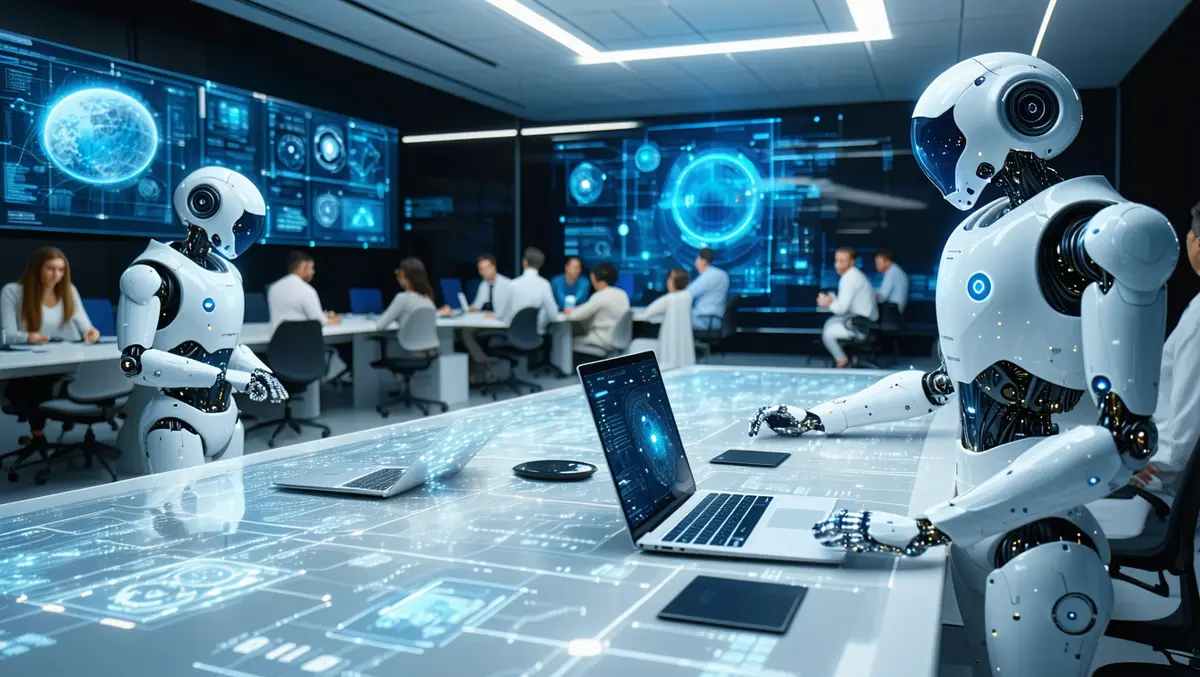
AI agents to redefine corporate roles by 2025, says Glass
The CEO of CYPHER Learning, Graham Glass, has shared insights into anticipated technological trends for 2025, predicting significant developments in artificial intelligence (AI) and the corporate landscape.
According to Glass, there will be a transformative shift from AI co-pilots to more autonomous agents in 2025. "Where 2024 was the year of co-pilots, 2025 will be the year of agents. AI agents will take a more active role interacting with their environments, even fulfilling additional rudimentary tasks. This development could unleash human potential, allowing workers to be much more productive. But for this to happen, businesses will need to get users onside and using the technology," he stated.
Glass cautioned about the challenges that come with these advancements, highlighting existing concerns among workers. "Building trust with agents could be difficult. 45% of workers already worry about their job security because of AI, and 33% want AI banned in the workplace, seeing it as a 'foe' rather than friend. Moreover, digital divides are already emerging around AI. Men, younger employees and senior management are more likely to benefit from AI and to have had training around the tech compared to over 55s, women and unskilled manual workers."
He emphasises the importance of targeted and personalised AI training as a tool for businesses to tackle these issues head-on. "Tackling these challenges head on will be key for businesses. This will put emphasis on the need for relevant, personalised, timely AI training and support. In response, AI will emerge as both challenger and champion, with L&D departments using AI technology to deliver personalised learning in moments of need at scale," Glass predicted.
Additionally, Glass forecasts the creation of a new C-suite role: Chief AI Officer (CAO). "Chief AI Officer, that is. For most of this century CIOs, CISOs, and other tech-domain leaders have fought for seats at boardroom tables and a voice in setting corporate priorities; their struggles are one reason cybersecurity took so long to advance to a tier-one corporate concern. As AI pervades every corner of the average, thoughtful organisation, bringing certain unknowns and risks as well as massive potential upside, this mistake won't be repeated," he explained.
The role of a CAO would be to provide oversight from technical to ethical as AI increasingly impacts business processes, according to Glass. "What will a CAO do all day? Ideally, exercise broad oversight, from technical to ethical, as AI iterations pervade every key business process from product design to building security to writing press releases. Spoiler: it's not going to be appropriate for everything, and a high-ranking corporate officer is best tasked with making calls and drawing red lines. As the technology plunges ahead, it's going to be vital for organisations to come up with rules of the road for deploying AI so its interests are advanced, not threatened," he stated.
Glass challenges the current notion of necessary AI proficiency by refuting the idea that mastering prompt engineering is crucial. "Only yesterday we were told that if would-be AI adepts want to wring anything useful from the technology, they'll have to learn complex prompt design. This myth has permeated to the masses, with 57% of workers saying they'd like to use AI more, but they need training to create effective prompts. We'll soon see how wrong that is as such barriers are stripped away," he contended.
He believes the ease of use of generative AI will increase, expanding accessibility and reducing digital divide concerns. "Good thing, too, because the idea was a natural limiter on AI's potential – and could have exacerbated already-troublesome digital divides. The computer era's most powerful, highest-impact revolutions have been those almost anyone can access. As AI evolves to understand natural language, user intent, and human behaviour, a broader swath of humanity can tap its capabilities. The digital world grows more inclusive. Far from making digital divides worse, AI as it progresses has the potential to shrink them," Glass noted.
Glass forecasts a notable embarrassment for a Fortune 500 executive making an unvetted AI-generated content public. "Someone somewhere is going to embarrass themselves in 2025 – probably someone we've all heard of, too – by inadvertently relaying plagiarised or inaccurate AI-generated content. Likely, content sent up to the executive suite, unproofed, by a comms team that ought to know better," he warned.
He underscores the need for human oversight in the realm of AI deployment. "AI deployments are best governed by an 80-20 rule; you can delegate 80 percent of rote, repetitive tasks to large language models, even in executive communications, but real live people can't abdicate the remaining 20 percent: that is, all the cross-checking, curating, editing, verifying, correcting, and managing. Left to its own devices, AI is still young and imperfect enough to mess up. It's hard to imagine a time when it – and we – won't need human overseers," Glass explained.
Ultimately, Glass argues that AI tools will serve to empower creative professionals rather than replace them. "We've all read dire warnings about how AI might decimate the workforce, especially those doing creative knowledge-based tasks like writing CEO keynotes. The truth is, AI tools elevate and empower genuinely creative people: writers, teachers, designers. Their text-based search engine chops may matter less in 2025 as AI becomes a better helpmate, but their judgment and direction will matter even more," he concluded.


